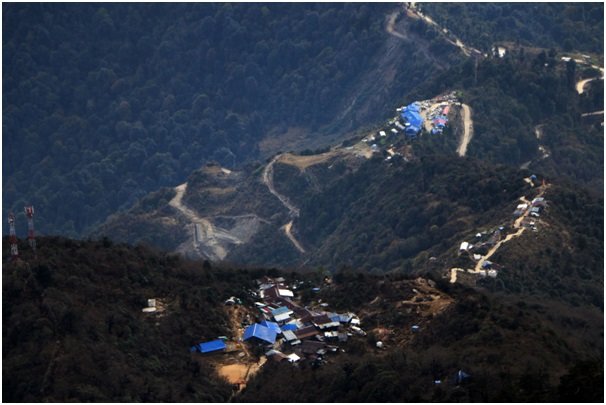DarkWebSafe: Navigating the Shadows of Cybersecurity

In our increasingly interconnected world, the internet has become an integral part of our daily lives. It has revolutionized the way we communicate, work, shop, and access information. However, as we embrace the digital age, we must also acknowledge the dark underbelly that accompanies it – the dark web. This hidden realm poses a significant threat to our cybersecurity, and understanding how to navigate it safely is essential to protect ourselves and our digital assets.
The Dark Web: Unveiling the Shadows
The internet is often likened to an iceberg, with the surface web, where most of our online activities take place, representing just a fraction of what's actually out there. Below the surface lies the deep web, which includes databases, private websites, and content that isn't indexed by search engines. Deeper still is the dark web, a clandestine realm intentionally hidden from conventional search engines. It's a place where anonymity reigns supreme and illegal activities often thrive. The dark web has gained notoriety for being a hub for criminal activities such as the sale of drugs, stolen data, hacking tools, and even the hiring of hitmen. This environment makes it a breeding ground for cybercriminals, making it essential to approach it with caution. In "The Art of Cyber Law & Cyber Crimes," a comprehensive guide to understanding and addressing the complex landscape of cybersecurity and digital crime, we are privileged to feature insights from Dr. Newal Chaudhary, a distinguished advocate at the Supreme Court of Nepal and a dedicated Assistant Professor of Law at Nepal Law Campus, Faculty of Law. Dr. Chaudhary, with his extensive experience and expertise in the field of cyber law, has made significant contributions to understanding the dark web, shedding light on this enigmatic and often perilous corner of the internet. His research and exploration of the dark web have provided invaluable insights into the nuances of cybercrime, and his dedication to unraveling its mysteries is commendable. Dr. Chaudhary has expressed detailed paragraphs on information’s dark web and red rooms and Dark Bert AI. The dark web is a clandestine and hidden part of the internet that operates beyond the scope of conventional search engines and web browsers. It is characterized by its anonymity, encrypted communication, and non-indexed websites. Users access the dark web through specialized software, with the Tor (The Onion Router) network being the most common choice, which routes internet traffic through a network of volunteer-operated servers, making it extremely difficult to trace the origin or destination of data. Dark web websites typically use ".onion" domains and are not searchable through regular means. While the dark web has legitimate and ethical uses, such as providing a platform for whistleblowers to share information securely or enabling individuals in regions with internet censorship to access information freely, it is also infamous for hosting illegal activities. These activities include the sale of drugs, stolen data, hacking tools, counterfeit documents, and more on various marketplaces.
Navigating the Dark Web Safely
While it's crucial to understand the dark web's potential dangers, it's equally important to grasp that not everything on the dark web is nefarious. There are legitimate and ethical reasons for venturing into this hidden realm. Researchers, cybersecurity professionals, and law enforcement agencies often explore it to gather intelligence on cyber threats, track down criminals, or understand emerging trends. If you find yourself needing to navigate the dark web for legitimate reasons, here are some key steps to ensure you do so safely:
i. Use a Secure and Anonymous Browser: The most common way to access the dark web is through the Tor network, which provides anonymity and privacy. The Tor Browser is a user-friendly tool for accessing .onion websites, the unique domain names used on the dark web.
ii. Understand the Risks: Recognize that your online actions on the dark web can still be traced, especially if you make mistakes. Ensure you're aware of the potential legal and cybersecurity risks.
iii. Protect Your Identity: Never use your real name or personal information when browsing the dark web. Use pseudonyms and disposable email addresses to maintain anonymity.
iv. Avoid Suspicious Links: Be cautious when clicking on links or downloading files from the dark web, as they may contain malware or lead to malicious sites. Stick to known and trusted sources.
v. Use Cryptocurrencies: Transactions on the dark web often involve cryptocurrencies like Bitcoin for added anonymity. Learn how to use cryptocurrencies securely if you plan to make purchases.
vi. Regularly Update Security Software: Keep your computer and security software up-to-date to defend against potential threats and vulnerabilities.
vii. Leave No Trace: When you're done browsing, ensure you close the Tor Browser and clear your browsing history to leave no traces behind.
The Importance of Ethical Use
While the dark web can serve legitimate and ethical purposes, it's crucial to emphasize the need for responsible and ethical behavior when exploring this hidden part of the internet. Here's why ethical considerations should always guide your actions on the dark web:
- • Legal Consequences: Engaging in illegal activities on the dark web can have severe legal consequences. Law enforcement agencies around the world monitor the dark web for criminal activities, and individuals involved in illicit actions may face prosecution. For example, if you participate in the sale or distribution of illegal substances or stolen data, you could face criminal charges.
- • Contributing to Cybercrime: Engaging in or supporting cybercriminal activities on the dark web contributes to the proliferation of cybercrime. This can harm individuals, organizations, and society as a whole. Cybercriminals exploit the anonymity and secrecy of the dark web to conduct activities that result in financial losses, data breaches, and other negative consequences for innocent parties.
- • Maintaining Ethical Standards: Ethical behavior is essential to maintain the integrity of research, cybersecurity, and the digital community. Researchers, cybersecurity professionals, and ethical hackers often access the dark web to gather intelligence on cyber threats, report vulnerabilities, or understand emerging trends. Their ethical use of the dark web contributes positively to online security and knowledge.
- • Protecting Personal Values: Approaching the dark web with ethical principles helps protect your personal values and reputation. Engaging in illegal activities can tarnish your professional and personal image, which can have far-reaching consequences.
In conclusion, understanding the dark web and knowing how to navigate it safely is a valuable skill in today's digital landscape. Whether you're a cybersecurity professional, a researcher, or merely curious about this hidden realm, approaching it with caution and ethical principles is essential. By doing so, you not only protect yourself from legal repercussions but also contribute to a safer online environment by not supporting or participating in cybercriminal activities. Ethical use of the dark web is not only a moral imperative but also a practical necessity to mitigate the threats posed by cybercriminals who operate in the shadows of the internet.
(Aravind Mukhiya is a security researcher.)






Leave Comment